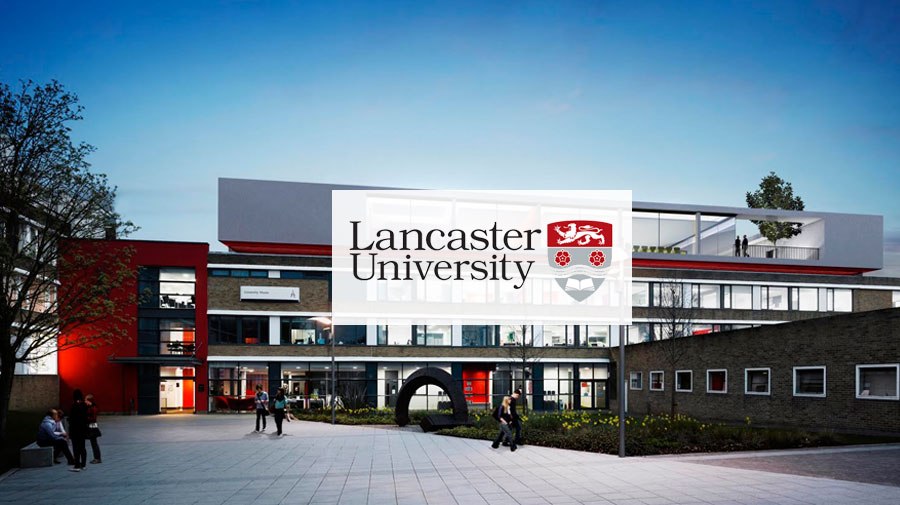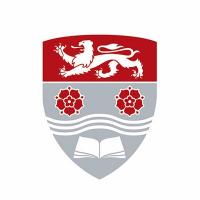Politics (Study Abroad) BA Hons
From the politics of energy to climate change, the politics of migration to global pandemics, and democratic accountability to the politics of self-identity - questions of power, representation, and protest loom large. Traditional party politics creaks under the weight of social transformation, while long-standing left / right allegiances are challenged by the rise of populism, nationalist sentiment and multiculturalism.
The study of Politics here at Lancaster examines the contemporary political processes, arguments and compromises through which these challenges are met, denied or avoided. Your studies at Lancaster will include analysis and exploration of UK domestic party-politics and policy, as well as the politics of nations such as the USA, China and Russia and regional contexts such as Latin America and the EU.
You’ll learn about the theories, concepts and approaches through which politics is academically engaged and understood, as well as gaining applied knowledge of how politics takes place on the ground.
The course at Lancaster University is taught by lecturers who are passionate about their specialisms and bring their latest research into their teaching.
The degree covers a very wide range of topics and, as you advance through the degree, you increasingly have the opportunity to tailor the degree to your own interests by choosing from a wide range of modules. You will find that the core topics we offer are typical of most Politics degrees in the UK. An important difference however is that we also offer modules in many areas of specific and topical staff expertise concerning government and politics in Britain, Europe and the world, as well a range of other relevant optional modules due to the interdisciplinary (Politics, Philosophy and Religion) nature of our department.
The cornerstone of your first year is the core module Politics in the Modern World which introduces key themes, concepts and events that are important in the study of modern politics at university level. This includes a balance of political practice and theories, in Britain and across the world.
In the 21st century there is an increasing interdependence between national and global, which means that domestic politics and international relations can no longer be properly understood in isolation from one another. We therefore recommend that in the first year you choose the optional module International Relations: Theory and Practice to complement to the core Politics module. However, you also have the option to take an introduction to Philosophy: Knowledge and Reality. You will be able to choose a third module from a range of subjects that complement your studies.
In the second year and final years you will be able to choose from a broad range of options. These are just some examples of the many modules we offer:
Britain in the World
Power in British Politics: The Role of the Prime Minister
Elections, Voters and Political Parties in Europe
Russian International Politics
Politics and History of the Middle East
Exploring Key Economic Issues
Public Policy
Politics of Global Danger
Contemporary Issues in Human Rights
Counterculture and Protest Politics
The options available in any given year will vary depending on our latest research, student feedback and topical concerns. You will find further information about modules in the Course Structure section.
In your final year, you have the opportunity to undertake a sustained investigation of a specific political subject that interests you via the dissertation option.
Your placement year
You will have the opportunity to spend Year 3 on a placement with a public, private or voluntary organisation in the UK or overseas. This experience should boost your employment prospects and help you to decide on your career direction and the kind of organisation in which you want to work once you graduate. You will be doing a real, responsible job – with all the satisfaction that brings.
Applying for a placement is a competitive process and our Placements Team will support you in finding and applying for a suitable placement. The preparatory modules you will complete in years one and two are designed to give you the best chance of success in both your placement applications and the placement itself.
One of the aims of the placement year is to enhance your understanding of the connections between theory and practice which could benefit your final year of study. Placements provide an exciting opportunity to build up experience and transferable skills, as well as to make contacts with potential employers, which can place you a step ahead in the graduate recruitment market.
The University will use all reasonable effort to support you to find a suitable placement for your studies. While a placement role may not be available in a field or organisation that is directly related to your academic studies or career aspirations, all placement roles offer valuable experience of working at a graduate level and gaining a range of professional skills.
If you are unsuccessful in securing a suitable placement for your third year, you will be able to transfer to the equivalent non-placement degree scheme and would continue with your studies at Lancaster, finishing your degree after your third year. The University offers a range of shorter placement and internship opportunities for which you would be welcome to apply.
“The Department has been a fascinating, welcoming and supportive environment from the beginning of first year to the end of final year. It is staffed by a diverse and friendly team that are always on hand to assist in matters, academic or general, whenever you need help. Lancaster offers a wide and varied range of modules throughout the degree which are taught with up-to-date research and essential critical insight.”
Ben Crumpton, BA (Hons) Politics and Philosophy
Extra curricular
We are a lively department and several staff are involved in national and international advisory groups and our students benefit from these connections. We have extra-curricular events such as conferences, talks and seminars taking place throughout the year.
Our students take part in several Politics-related clubs and societies that are among the large number of clubs and societies supported by Lancaster University Student’s Union. These include the Politics Society, which is independent of any particular political leaning, as well as societies for all main UK political parties. There are regular events, debates, trips and high profile visiting speakers, which provide numerous ways to get involved and meet other students who share your interests.
Intakes
- Sep
Application Processing Time in Days: 20
Minimum English Language Requirements
| English Level Description | IELTS (1.0 -9.0) | TOEFL IBT (0-120) | TOEFL CBT (0-300) | PTE (10-90) | |
|---|---|---|---|---|---|
| Expert | 9 | 120 | 297-300 | 86-90 | |
| Very Good | 8.5 | 115-119 | 280-293 | 83-86 | |
| Very Good | 8 | 110-114 | 270-280 | 79-83 | |
| Good | 7.5 | 102-109 | 253-267 | 73-79 | |
| Good | 7 | 94-101 | 240-253 | 65-73 | |
| Competent | 6.5 | 79-93 | 213-233 | 58-65 | |
| Competent | 6 | 60-78 | 170-210 | 50-58 | |
| Modest | 5.5 | 46-59 | 133-210 | 43-50 | |
| Modest | 5 | 35-45 | 107-133 | 36-43 | |
| Limited | 4 | 32-34 | 97-103 | 30-36 | |
| Extremely Limited | < 4 | < 31 | < 93 | < 30 |
Job Opportunity Potential
Access help and advice, search for opportunities, see what events are taking place, apply for the Lancaster Award, explore further study options and other pathways to your future career.
Careers and Employability is open. All of our services are now available remotely.
You can book telephone or video appointments with our Careers Team, attend online workshops, send us a query and access all of our resources online. Information on how to access all of our services is available via this link.
International students bring a wealth of experience to the University and can offer a valuable insight into global careers. Support for international students is available from Lancaster University Careers Service.
PSW Opportunity
PSW is 2 years
Admission Requirement / Eligibility Criteria
Indian Certificate of Secondary Education (Standard XII)
Pass with 75% to 87% average from the best 4 subjects, excluding Hindi and PE.
- Course Code: L201
- Course Type: Full Time
- Course Level: Bachelors/UG Degree
- Duration: 03 Year
-
Total Tuition Fee:
59790 GBP
Annual Cost of Living: 9207 GBP
Application Fee: N/A
Similar Programs
- Politics, Religion and Values (Placement Year) BA Hons at Lancaster University
- Politics, Religion and Values BA Hons at Lancaster University
- Politics and International Relations (Placement Year) BA Hons at Lancaster University
- Politics (Placement Year) BA Hons at Lancaster University
- Law (Study Abroad) LLB Hons at Lancaster University
- Law (Placement Year) LLB Hons at Lancaster University

